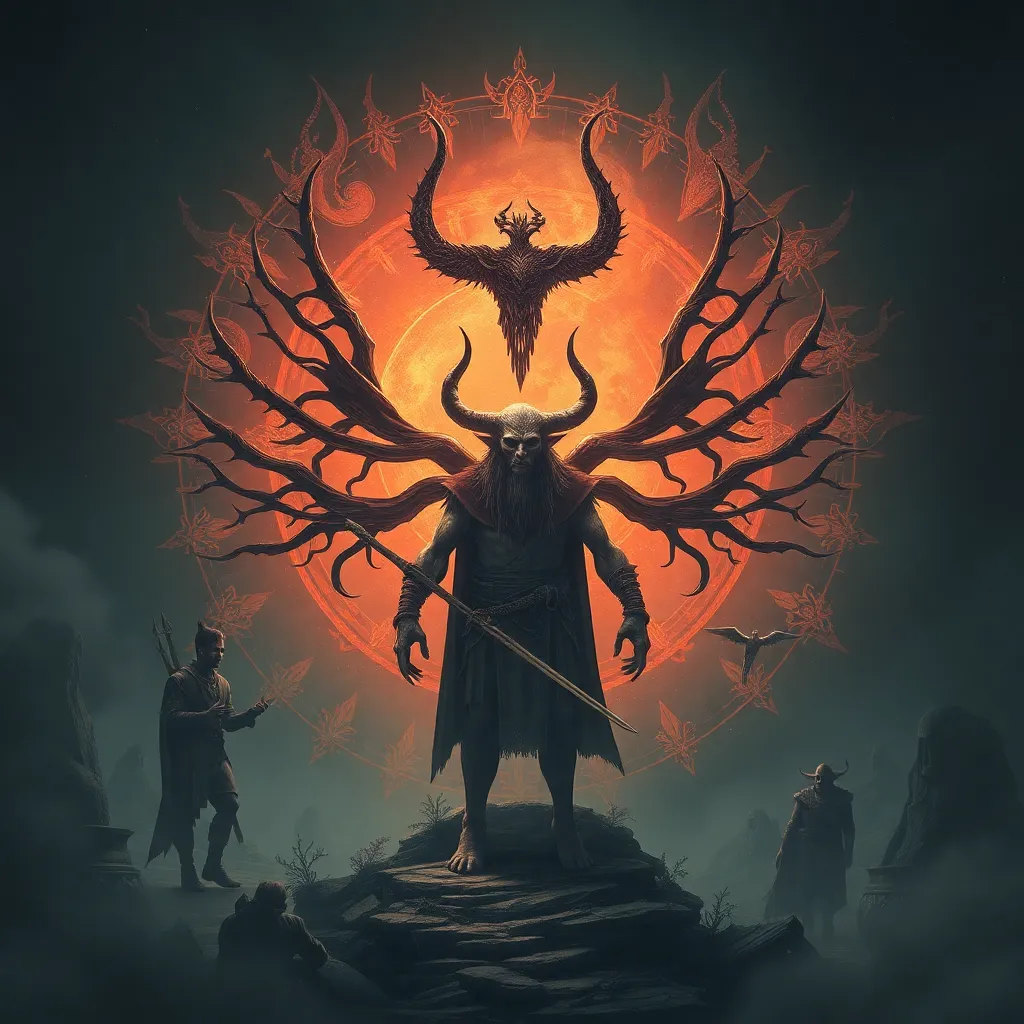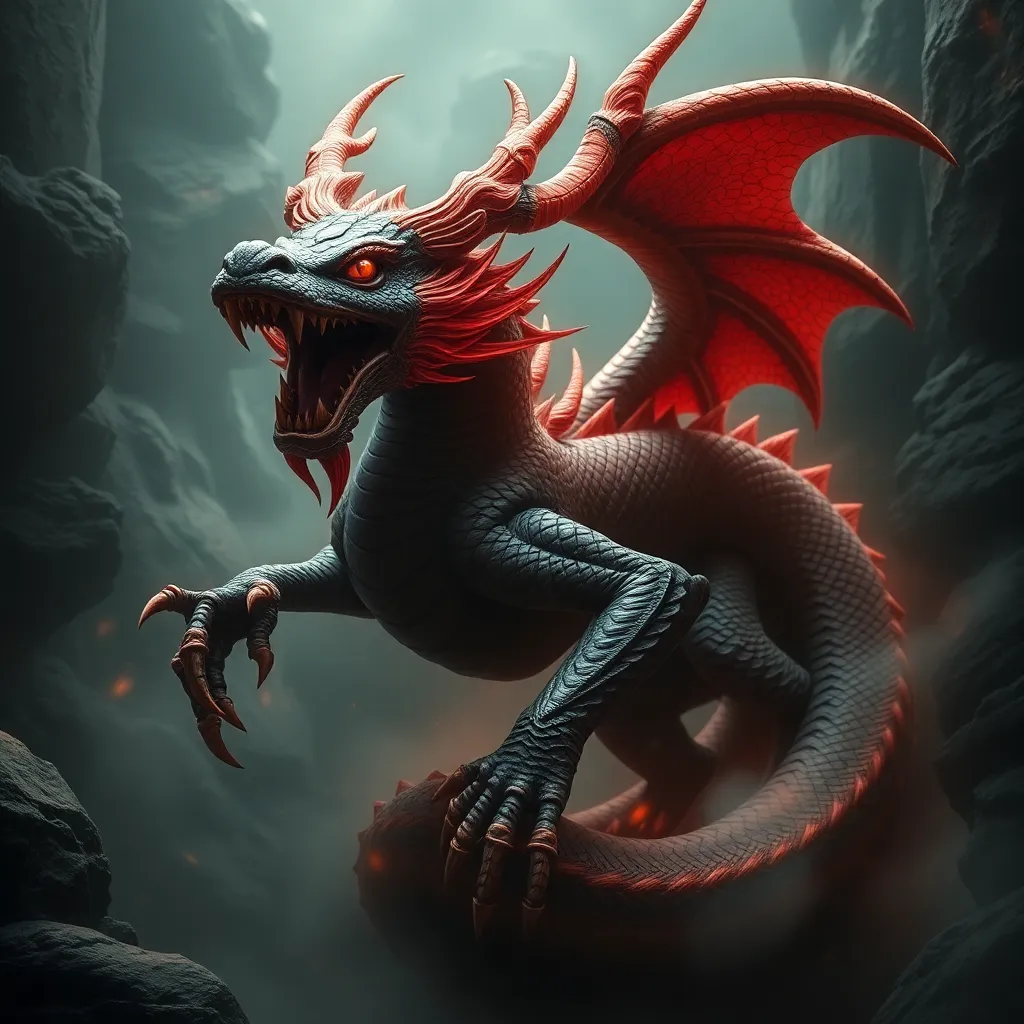The Orcish Journey of Life: Examining the Stages of Life & Death in Orcish Cultures
I. Introduction
Orcish cultures have long fascinated fantasy enthusiasts, depicted as fierce warriors with a rich tapestry of traditions and values. These societies, often misunderstood or portrayed solely as brutish, possess a profound cultural significance that transcends mere combat prowess. Understanding the stages of life and death in Orcish cultures is crucial in appreciating their complexities and the values they uphold.
This article aims to explore the various stages of Orcish life, from birth to death, shedding light on the rituals, customs, and beliefs that define their existence. By examining these stages, we can gain insight into the Orcish identity and values, and understand how these elements influence their societal structure.
II. Birth and Early Life
The journey of an Orc begins with birth, an event celebrated with various rituals that signify the arrival of a new life. Orcish birth customs often include:
- Ritual Blessings: Elders conduct blessings to ensure the child grows strong and healthy.
- Naming Ceremonies: Names are chosen based on family lineage and the traits hoped to be instilled in the child.
- Gift Offerings: Clan members present gifts that symbolize strength and protection.
Family and clan play a vital role in the early development of an Orc. Children are raised within the context of their clans, learning the importance of community and loyalty. The initiation practices for young Orcs often involve:
- Storytelling: Elders share tales of valor and wisdom to instill cultural values.
- Physical Training: Early lessons in combat and survival skills begin at a young age.
- Clan Duties: Children are taught their responsibilities to the clan from an early age.
III. Adolescence and Coming of Age
The transition from childhood to adolescence is marked by significant rituals that signify the young Orc’s readiness to embrace adulthood. These rites of passage often include:
- Coming of Age Ceremonies: Celebrated with feasts and contests to showcase strength and skill.
- Proving Grounds: Young Orcs may be sent on a journey or task to prove their worth to the clan.
During this stage, the importance of strength and skill acquisition is paramount. Orcish society values physical prowess and combat skills, and young Orcs are expected to train rigorously. Cultural expectations dictate that:
- Adolescents must demonstrate their abilities in community competitions.
- They are entrusted with more significant responsibilities within the clan.
- Mentorship from experienced warriors is common to guide their development.
IV. Adulthood and Community Role
Upon reaching adulthood, Orcs assume critical roles within their communities. The social structure of Orcish societies is often hierarchical but deeply interconnected, with each member contributing to the clan’s survival and success. Roles within Orcish society can include:
- Warriors: The defenders of the clan, trained in various forms of combat.
- Shamans: Spiritual leaders who guide the clan in matters of the spirit and nature.
- Craftsmen: Skilled artisans who create tools, weapons, and art.
Relationships, marriage, and family dynamics in Orcish culture are often based on mutual respect and strength. Marriages are frequently arranged but can also be based on love, with an emphasis on producing strong offspring to continue the clan’s legacy.
V. The Warrior Ethos and Its Implications
The ethos of the warrior is deeply ingrained in Orcish life. Warfare and combat are celebrated aspects of their culture, with numerous implications:
- Honor and Valor: Orcs are taught to uphold honor in battle, and falling in combat is seen as a noble end.
- Legacy of Fallen Warriors: The stories of fallen warriors are preserved and recounted, inspiring future generations.
- Community Resilience: The impact of warfare shapes the Orcish worldview, fostering a strong sense of unity and resilience.
VI. Aging and Wisdom
Aging in Orcish cultures is respected and revered. Elders are seen as the bearers of wisdom and experience, contributing significantly to community dynamics. Their roles often include:
- Advisors: Elders provide counsel on important decisions and conflict resolutions.
- Storytellers: They pass down oral traditions and histories, ensuring the clan’s lore is preserved.
Shamans and spiritual leaders often emerge from the ranks of the elderly, as their life experiences grant them unique insights into the spiritual realm. Aging influences community decision-making, with elders having a significant say in clan matters.
VII. Death and the Afterlife
Death is viewed as a natural part of life in Orcish cultures, accompanied by specific beliefs and rituals. Orcish beliefs about death often include:
- The Journey of the Soul: It is believed that the soul embarks on a journey to the spirit world upon death.
- Honoring the Deceased: Ceremonies are held to celebrate the life and accomplishments of the departed.
- Rituals for the Afterlife: Offerings may be made to guide the deceased in their journey.
Ceremonies and traditions for honoring the deceased are vital to Orcish culture, helping the living cope with loss while celebrating the legacy of those who have passed. These rituals often include communal gatherings, storytelling, and the reaffirmation of clan bonds.
VIII. Conclusion
The stages of life and death in Orcish cultures reveal a rich tapestry of beliefs, values, and traditions that provide insight into their identity. From the rituals surrounding birth to the reverence of elders and the honored ceremonies for the deceased, each stage reflects the Orcish commitment to community, strength, and honor.
Understanding these stages not only enriches our knowledge of Orcish lore but also encourages a deeper appreciation for the complexities of their culture. The Orcish journey of life is a powerful narrative of resilience, unity, and the enduring human experience, inviting us to reflect on our own values and identities.



